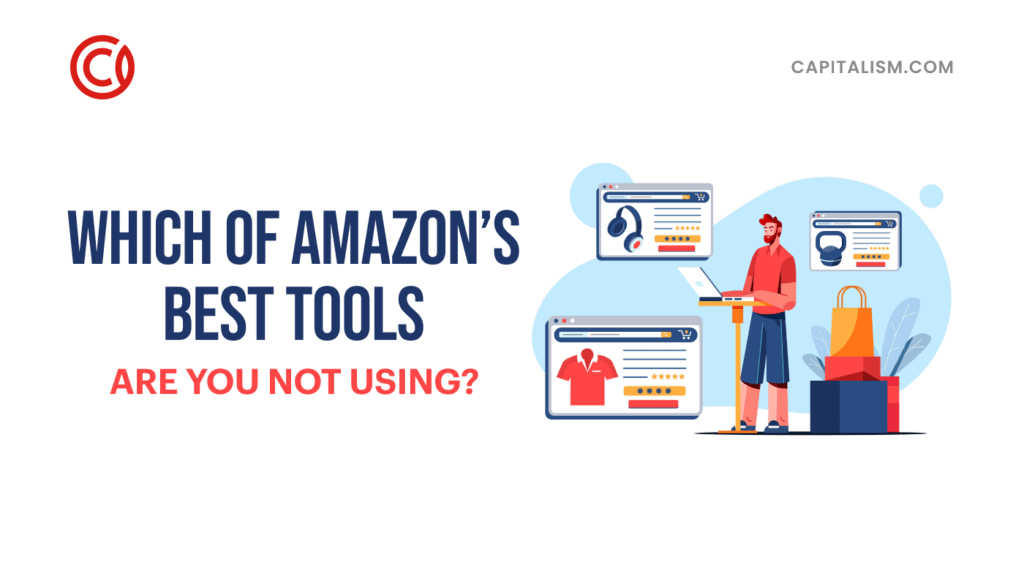Every budding entrepreneur faces the question sooner or later: How do I stay motivated while I’m starting a new business? Keeping your drive alive can be challenging to even the most successful of businesspeople, but it is during the startup phase that it poses the biggest problem for most. Let’s explore some strategies to keep yourself – and your new business – going during the toughest of times.
Discipline > Motivation
No one is motivated all the time. This is a reality of being human. As the owner of a startup business, though, you have to go to work... whether you want to or not. There will be moments when you’ll need to rely on self-discipline, rather than motivation.
You’ve probably experienced life as an employee. As an employee, you almost certainly had days when you just didn’t feel like working. Yet you knew that you had no choice. You had bills to pay and a boss to answer to, and your boss wasn’t concerned with how you felt. (S)he just expected work to get done.
Strangely, when transitioning from employee to business owner, many people “forget” that they still have the same bills to pay. Maybe not literally, but it can be tempting to ignore those bills at times. Without a boss breathing down your neck, it’s easy to just decide that you need a break, even when you can’t afford to take one.
Sometimes you just need to “dig deep” and go to work... just like you had to do when working for someone else.
That said, a little inspiration can make self-discipline a bit easier.
What inspired you to start your own business?
For most entrepreneurs, motivation can be fleeting. Moments, days, even weeks can go by when you just feel energized and inspired, almost as if there’s nothing you can’t accomplish; unfortunately, these times always pass. For many, they can be followed by a feeling of lethargy and disinclination toward anything productive.
Of course, for someone who has recently started a business, giving in to these feelings isn’t an option. During these moments, a reminder of why you started your business can be the first step in getting back “in the groove.”
While it may be cliché, it’s true that a strong enough why can keep you pushing through the most difficult times. Even so, most business owners will at least occasionally lose sight of that original inspiration and need a good reminder. If you’ve never written down your reasons for starting a business, do it now. Revisit it often, especially when you need a boost, and revise it as necessary.
How to stay motivate while starting a business?
Looking at your own reasons for going into business for yourself is certainly helpful, but if it were enough, you wouldn’t be reading this article. Fortunately, there are plenty of other ways to get inspired.
Look for inspirational media for entrepreneurs
One of the quickest and easiest sources of new business motivation comes from media designed for that express purpose. There is no shortage of such media available, from posters with motivational quotes to blogs, videos, podcasts, and even TV shows.
Find a few go-to quotes that work for you, a couple videos that get you pumped, maybe some music that drives you. Access them whenever you need a bit of energy. Write quotes on your whiteboard, on post-its tacked to your computer monitor, on your bathroom mirror, and anywhere else you’ll be sure to see them.

Set goals
You’ve heard this one a thousand times, at least. Every entrepreneur understands the necessity of having goals for their business. But having goals is not enough by itself. They need to be good goals. And, you need to review them often.
So what makes a “good” goal? You’ve probably heard the acronym SMART—goals should be Specific, Measurable, Achievable, Relevant, and Time-bound. Each component of that acronym matters.
- Specific – Most people have set vague goals like, “I want to lose weight.” Vague goals produce uncertain outcome. Real goals need detail. “I’m going to lose 25 pounds” or “I’m going to lose 3 inches from my waist” are actionable goals. You know when you’ve achieved them.
- Measurable – This goes with the previous. You can’t achieve a goal if there’s no way to measure it. Losing 25 pounds or three inches are things you can measure. In business, a goal like “We need to improve our client communication” is not measurable. A better version might be, “We will contact every client by phone at least quarterly.”
- Achievable – Many people struggle with this one. Having big goals is important, but if they are so big as to be unachievable, they become demotivating. If you’re six feet tall and 250 pounds, losing 150 pounds is extremely unlikely and definitely unhealthy. Losing 50 pounds, though, is difficult but (most likely) achievable.It’s not just important that a goal is achievable, though. It has to be achievable for you, and you have to believe it is achievable. If you find yourself giving up on your goals because they quickly seem impossible, you might be a bit overambitious. Whatever the goal, look at the best you’ve ever done, then increase the goal to just beyond your best. It will challenge you, but will likely still be within your capabilities.
- Relevant – The goal needs to make sense. Does it fit with your overall vision? Is it something that matters to you? Do you have the necessary resources to pursue this goal? Is it something that’s worth focusing on now? Will it aid or hinder other important business goals?
- Time-bound – As Robert Herjavec from the TV show Shark Tank says, “A goal without a deadline is just a dream.” Looking at the weight loss example, “I’m going to lose 25 pounds” is a dream. “I’m going to lose 25 pounds by June 1” is a goal. Every goal needs a deadline. It is the deadline that makes goals motivating.

Get an accountability partner (or several)
An undeniable part of human nature is that, whatever we’re trying to accomplish, we try a little harder when someone else is watching. Take advantage of this.
You’ve set yourself a few SMART goals; now share them. The more people you share your goals with, the better. You want people asking how you’re progressing. If everyone you know expects you to do something, it’s a lot harder to give up when it gets difficult.
An accountability partner, though, is more than just a person you share your goals with. It should be a person who you can count on to “hold your feet to the fire.” Your oldest friends might let you off easy. Your accountability partners won’t. They will ask you the tough questions and won’t accept your excuses. They will, as best as they are able, force you to achieve your goals.
It’s important to remember with accountability partners that it should be a reciprocal relationship. You both need to get something out of it, so be willing to provide the same level of accountability as you are hoping to get.

Take breaks
While it’s a bad idea to take too much time off, this is rarely a problem for entrepreneurs. Most of us are reluctant to take any time away from our businesses. And in your business’s startup phase, this can be a good thing. Taking a vacation during the first year or so of starting a business can be a very bad idea.
Even so, we all need rest. Both our minds and our bodies need time to recover. Take short breaks during your workday and give yourself time to “recharge” when your workday is done. Give yourself real time off—when your workday is over, leave work alone. It will still be there in the morning. Neglecting recovery time is one of the quickest paths to burnout.

Let others be your motivation
Who does your business help? When you are having challenges that sap your drive, think about them.
Think about the benefits your customers and clients get from your product or service.
Think about your team. Think about the jobs your company provides. The benefits. The income. The camaraderie.
Think about the charities you can support because of your business success.
Think about your family and the lifestyle your successful business will provide for them.
Think about your friends and the kind things you can afford to do for them when your business succeeds.
All of this relies on your business’s success. All of these people want to see you succeed. Do you want to let them down?

Don’t neglect your health
It’s hard enough keeping your energy up with all the stress of running a new business. If you aren’t paying attention to your physical health, your business motivation is bound to suffer.
This means getting a good night’s sleep every night. Many, if not most entrepreneurs believe they can get by on less sleep than other people. The unfortunate reality, though, is that only 3% of people have the gene that allows them to function well on less than 6 hours of sleep. Chances are, you are not one of them.
Also critically important is the fuel you’re giving yourself. What you eat provides the energy you need to get through the day, but eating the wrong foods can lead to feeling sluggish and unmotivated. Worse, an unhealthy diet can lead to long-term health problems that can have an even worse impact on your business.
Sugar in particular should be avoided as much as possible. We’re all familiar with that sugar high, followed by the crash. It’s that crash that is particularly bad for keeping your motivation up, and usually more sugar is the “solution” people opt for. It’s a very unhealthy cycle to get into, both for your body and for your business.
Exercise, too, is essential for your health. The human body is meant to move. If you’re stuck behind a desk all day, it’s all-the-more important to find the time for physical activity. Neglecting exercise leads to increased fatigue overall—exactly the opposite of what a new business owner needs. Getting plenty of exercise, though, gives you more energy, reduces stress, and even helps you sleep better.

Challenge yourself
Entrepreneurial types tend to be fairly competitive. Competition, though, doesn’t always have to be against someone else. Compete with yourself, challenging yourself to outdo past successes. Or pick a project with an impending deadline and challenge yourself to beat that deadline by a day or two.
You don’t need to work “all out” all the time, but occasionally a hard “sprint” will energize you, and perhaps even show you that you can accomplish more than you thought.

Reward yourself
This goes hand-in-hand with challenging yourself. When you’ve pushed yourself extra hard, make sure there’s a payoff. The business benefits of that effort are great, but you also want a reward that you can enjoy immediately. Just about anything you enjoy will work—a favorite meal, going golfing, spending time with a good friend... just make it something you’ll appreciate and feel like the extra work was worth the payoff. And don’t cheat—you only get the reward if you achieve your goal.
Motivation for small business owners will wax and wane. This is an inevitability of running a business and a reality of being human. You can prepare yourself, though, for the toughest times with these strategies to help keep your motivation strong.













